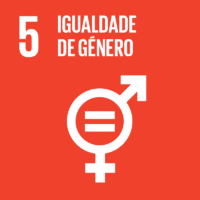Ciência_Iscte
Publicações
Descrição Detalhada da Publicação
Fertility, migration and acculturation (FEMINA): a research protocol for studying intersectional sexual and reproductive health inequalities.
Título Revista
Reproductive health
Ano (publicação definitiva)
2019
Língua
Inglês
País
Reino Unido
Mais Informação
Web of Science®
Scopus
Google Scholar
Esta publicação não está indexada no Overton
Abstract/Resumo
Background: The existing knowledge on the interplay between reproductive and sexual health, migration and acculturation is recent and inconsistent, particularly on the sociocultural motives and constraints regarding fertility. Therefore, sexual and reproductive health (SRH) surveys are needed to provide accurate and comparable indicators to identify and address SRH inequalities, with specific focus on under researched aspects, such as the interrelation between migration and gender. FEMINA (FErtility, MIgratioN and Acculturation) aims to investigate intersectional SRH inequalities among Cape Verdean immigrant and Portuguese native families and how they impact on fertility in Portugal. This study will use a comprehensive approach exploring simultaneously the components of SRH, namely regarding identities, perceptions and practices of both women and men among lay people and relevant experts and stakeholders. The project has three main goals: 1) to identify social determinants of SRH among Cape Verdean immigrant and Portuguese native men and women of reproductive age; 2) to gain understanding of the diversity of the sexual and reproductive experiences and expectations of Cape Verdean immigrant and Portuguese native men and women of reproductive age, considering the singularities of their migratory, social and family dynamics; and 3) to produce recommendations for policy makers, employers and service providers on how to better address the SRH needs of Portuguese-born and immigrant populations. Methods: The study will address these goals using a mixed methods approach, including: a cross-sectional telephone survey with a probabilistic sample of 600 Cape Verdean immigrant and 600 Portuguese native women and men (women aged 18 to 49 and men aged 18 to 54), residents of the Greater Lisbon Area; a qualitative research through in-depth interviews with a subsample of 30 Cape Verdean immigrants and 30 Portuguese native men and women; and a Delphi technique for finding consensus on good practices in SRH for the entire population with a special emphasis on immigrants, namely extra-EU migrants. Discussion: Data will be used to produce a comprehensive set of indicators to monitor SRH in Portugal, to foster a greater understanding of its specificities and challenges to policy and decision makers, and to provide targeted recommendations to promote inclusive and migrant sensitive SRH services.
Agradecimentos/Acknowledgements
--
Palavras-chave
Sexual and reproductive health inequalities,Intersectionality,Immigrants,Fertility,Acculturation,Survey,Qualitative research
Classificação Fields of Science and Technology
- Ciências da Saúde - Ciências Médicas
- Sociologia - Ciências Sociais
Registos de financiamentos
| Referência de financiamento | Entidade Financiadora |
|---|---|
| PTDC/SOC-SOC/30025/2017 | Fundação para a Ciência e a Tecnologia |
| UID/SOC/03126/2013 | Fundação para a Ciência e a Tecnologia |
Projetos Relacionados
Esta publicação é um output do(s) seguinte(s) projeto(s):
Contribuições para os Objetivos do Desenvolvimento Sustentável das Nações Unidas
Com o objetivo de aumentar a investigação direcionada para o cumprimento dos Objetivos do Desenvolvimento Sustentável para 2030 das Nações Unidas, é disponibilizada no Ciência_Iscte a possibilidade de associação, quando aplicável, dos artigos científicos aos Objetivos do Desenvolvimento Sustentável. Estes são os Objetivos do Desenvolvimento Sustentável identificados pelo(s) autor(es) para esta publicação. Para uma informação detalhada dos Objetivos do Desenvolvimento Sustentável, clique aqui.

 English
English




